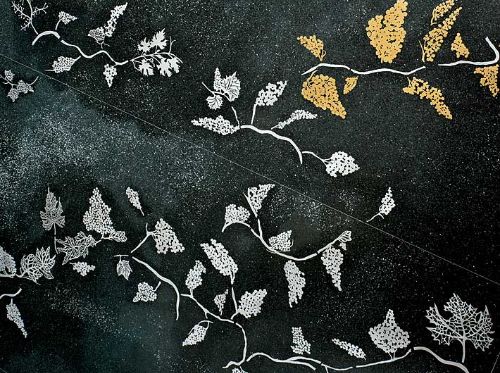
In Memoriam of the Nine Iraqi Jews hanged at Baghdad on 27 January 1969: Sabah Haim Dayan, Daoud Heskel Barukh Dellal, Fouad Gabbay, Naim Khedouri Helali, Heskel Saleh Heskel, Charles Raphael Horesh, Yeheskel Gourji Namerdi, Daoud Ghali Yadgar, Ezra Naji Zilkha, as well as the two hanged at Basra: Yeheskel Eliahou Dellal and Yeheskel Raphael Yacoub, HY”D.
Click here to dedicate a future issue in honor or memory of a loved one.

The Sephardi Ideas Monthly is made possible by generous readers like you. Become a Patron of the Sephardi Ideas Monthly via Patreon and your name will appear in each edition along with essays and interviews from the rich, multi-dimensional world of Sephardi thought. Thanking you in advance!
~~~~~~~
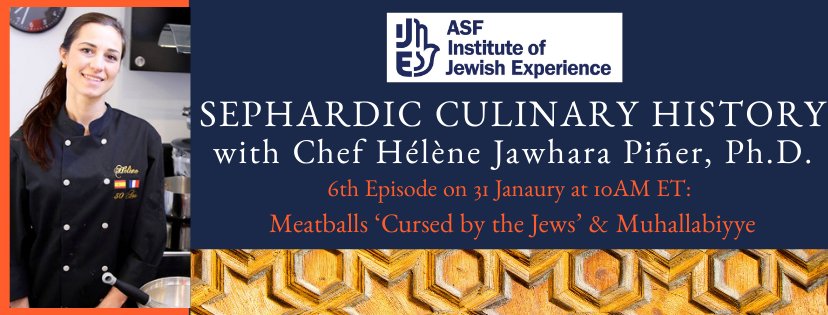
Sephardic Culinary History with Chef Hélène Jawhara-Piñer
Join us on Sunday, 31 January at 10:00AM EST for Episode VI: Meatballs ‘Cursed by the Jews’ & Muhallabiyye.
A special show focusing on Sepharadim in the Middle East.(Complimentary RSVP; Donations suggested)
Your generous contribution will support Chef Jawhara Piñer’s forthcoming academic publication and accompanying recipe book, as well as the ASF Institute of Jewish Experience!
Sponsorship opportunities available:
info@americansephardi.org
~~~~~~~
Sephardi Ideas Monthly is a continuing series of essays and interviews from the rich, multi-dimensional world of Sephardi thought and culture that is delivered to your inbox every month.
This month, Sephardi Ideas Monthly shines its spotlight on one of the most remarkable artist-intellectuals in the contemporary Jewish world, R’ Haim Sabato, an award-winning novelist and devoted rabbinic scholar-educator, who beautifully embodies the classic Sephardi capacity to integrate a sophisticated worldliness with a deep commitment to Jewish life. Our introduction to Sabato is through an interview conducted by Shira Leibowitz Schmidt and Jessica Setbon, “Up Close with Rosh Yeshivah-Turned-Novelist Haim Sabato” (Jewish Action; Fall, 2006).
Born in Cairo in 1952, Haim Sabato descends from a long line of rabbis from Aleppo, Syria. He moved with his family to Israel at age five, was educated in Israeli yeshivot, and underwent a transformative experience during the 1973 Yom Kippur War that inspired him to co-found Birkat Moshe, a prestigious religious-Zionist yeshiva, where he serves today as Rosh Yeshiva. Writing, he confesses, “‘is a refuge… a room of my own.’” Sabato is the author of five books of prose (translated into English by Koren Publishers), besides seven works of Torah scholarship.
In this wide-ranging interview (which includes a number of translated passages), Sabato reflects on the “Aleppo Tradition” on which he was raised, some important teachers in his life, his experience during the Yom Kippur War, his motivation for founding a yeshiva, and how all of the above find expression in his writing. The sum total is a fascinating glimpse into Sabato’s simultaneously grounded and expansive spiritual world.
“Up Close with Rosh Yeshivah-Turned-Novelist Haim Sabato”
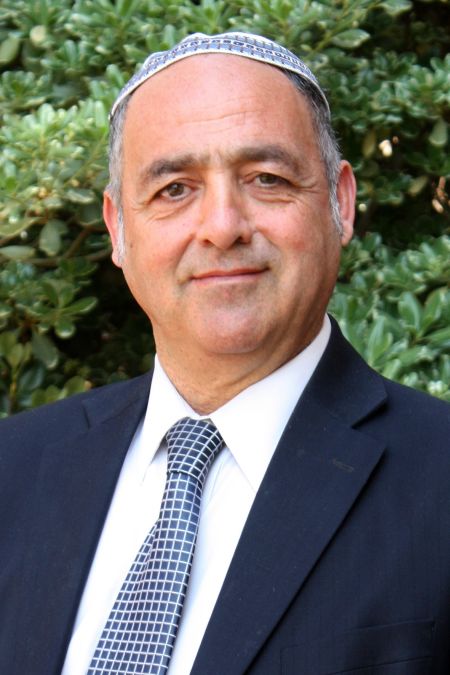
(Photo courtesy of Bar-Ilan University)
Consider how Sabato reflects upon his grandfather, Haham Aharon Shweka, who features in Aleppo Tales. Shweka embodies an ideal of wholeness—“‘my grandparents’ generation in Aleppo were pious scholars who were also merchants’”—that has largely disappeared in contemporary Jewish religious circles. As Sabato writes in Aleppo Tales (included in the interview):
In keeping with the ways of many of the sages of Aleppo, my grandfather did not make a living from the Torah. He was a trader in fabrics, spending a few hours in his shop and the rest of the day at his studies. What would have been surprising in Eretz Israel was considered normal in Aleppo. Once a certain scholar came from Eretz Israel to Aleppo. He went into the Beit Midrash and asked the local scholars about a halakhic ruling that was the object of a dispute in Eretz Israel. They could not answer him. They told him: ‘We have no answer, but there is a sage among us; perhaps he can answer your question.’ He asked them: ‘And where is he studying?’ They told him: ‘In the textile market.’ He went to the market and found him grappling with rolls of satin fabric. He asked him: ‘Is it possible you have knowledge of such-and-such a halakha?’ The sage gave him the answer, then said, ‘Wait for me, I have a transaction to complete with this roll of fabric, and then I shall tell you the source.’ He went to wherever he went, sold whatever he sold, and returned to his shop. He took the scholar from Israel by the hand, went with him to the Beit Midrash, climbed up, took from the bookcase a copy of Nehar Shalom, showed him the reference, and returned to his shop. The scholar said to the people in the Beit Midrash: ‘Have you taken leave of your senses? You have such a treasure in your midst, and yet you let him waste his time among spools of fabric?’
Sabato himself was educated in this path:
My father emphasized religious studies but insisted that my brothers and I acquire a general education in addition to a deep grounding in Torah. Then afterward, we could decide what direction to take.
The Yom Kippur War?
I was twenty-two… and had finished basic training in the tank corps. We were young and innocent and dreamers. We were in the synagogue. We reverently awaited the blast of the shofar. Instead, the siren—undulating and piercing—sounded for an army call-up. Everything changed forever. Within hours we were in another world. Rapidly loading equipment on tanks, suddenly we were face to face with death. All around us long columns of Syrian tanks were approaching. And then I felt all that we had learned in books course through me. Verses and derashot seemed to come to life in front of my eyes: the Land of Israel and the people of Israel; protecting Israel from its enemies; Maimonides’ injunction against displaying fear in time of war.
While Sabato’s book about the war, Tiyum Kavvanot (translated by Hillel Halkin into English as, Adjusting Sights), won the Sapir Prize for literature, the novel has served as a source of spiritual strength for Israelis from across the social and political spectrum:
After it was published, soldiers and officers told me, with tears in their eyes, that they were glad the experience had finally been recorded. There have been hundreds of responses from all sectors—secular, religious, army, civilian, literati, laypeople—some of them especially moving… One highly ranked officer who was severely wounded during the war said in an interview with the army magazine that Adjusting Sights encouraged him during his recovery.
But these passages are a small sample of the fascinating stories and insights featured in the discussion with Sabato. Sephardi Ideas Monthly is very happy to introduce a living embodiment of classic Sephardi Judaism to our readers, R’Haim Sabato, with this month’s stimulating interview, “Up Close with Rosh Yeshivah-Turned-Novelist Haim Sabato.”
~~~~~~~
Special Tu B’Shvat Feature: An Iraqi Piyyut, Az Yeranen

In celebration of Tu B’Shvat, we offer Yehuda Ovadia-Ftaya and Erez Lev Ari’s performance of “Az Yeranen,” an Iraqi piyyut composed by Rabbi Yosef Hayyim (the Ben Ish Hai). The song declares, in the spirit of Tehillim (Psalms), that the entire natural world sings to God. What’s more, the Ben Ish Chai praises God in terms of the seven species with which the Land of Israel is blessed and which are traditionally eaten on the holiday: wheat, barley, grapes, figs, pomegranates, olives, and dates.
~~~~~~~
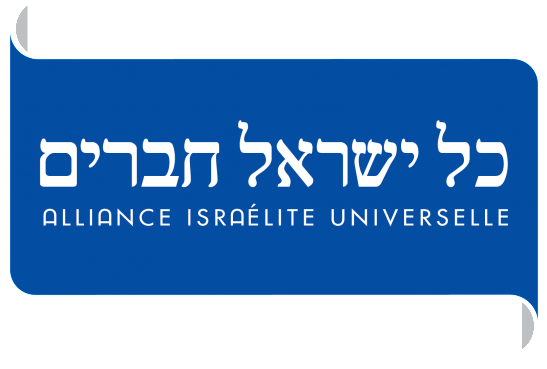
The Monthly Sage החכם החודשי
Hakham Yaakov Shaul Elyashar
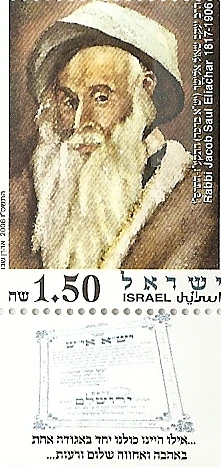
(Photo courtesy of Ventura Daniel/Wiki)
The sage for the month of January, 2021, is Hakham Yaakov Shaul Elyashar (1817- 1906), popularly known as, “The Yisa Beracha.”
Yaakov Shaul’s father, Rabbi Eliezer Yeruham Elyashar, was a learned communal rabbi who passed away when little Yaakov Shaul was only seven. Four years later, Yaakov Shaul’s mother married Hakhanm Binyamin Mordecai Navon, the head of Jerusalem’s rabbinic court. Hakham Binyamin not only accepted Yaakov Shaul as a student, but raised him like his own son. By age thirteen Yaakov Shaul was considered a prodigy, but he made his living through commerce. Yaakov Shaul married at age fifteen, choosing as a bride a girl who had been orphaned like himself.
In 1853, Hakham Yaakov Shaul was ordained as a dayan (judge) by the Jerusalem rabbis and sent to Alexandria in order to reverse the community’s decision to cease receiving rabbinic emissaries from the Land of Israel. He succeeded in the task and was even asked to remain in Alexandria as the city’s rabbi, but refused.
In 1869, Hakham Yaakov Shaul was appointed President of the Jerusalem Rabbinic Court. He served in this position until 1893, when he was appointed to the position of Rishon LeTziyon, the spiritual leader of the Sephardic community in the Land of Israel. Hakham Yaakov Shaul served in this position for thirteen years, until his passing on the 18th of Tammuz 5666 (1906). Four years after his death, his son Hakham Nissim Elyashar, founded Jerusalem’s Givat Shaul neighborhood in his father’s name.
Hakham Yaakov Shaul Elyashar authored several books of sermons, rabbinic responsa, as well as piyyutim.
In the following sermon from Ish HaEmunim, a collection of sermons on the Festivals of Israel, Hakham Yaakov Shaul teaches that those who give charity are judged as God’s sons, despite any sins they may have committed:
“Happy are they who maintain justice, and do righteousness at all times.” The meaning is that those who maintain justice are happy, teaching us that we are judged as sons; who can this come about? Precisely by giving charity at all times. Even at times when one is not doing the Almighty’s will, meaning when one is transgressing, even then – doing charity attests that we are to be judged as sons… According to this, what our rabbis of blessed memory meant can now be understood: “Greatest is charity, in that it expedites the redemption”, for it says, “Observe what is right and do what is just”. They ask, saying that according to the verse it would seem that both are necessary – what is right, and what is just – how then did Rabbi Yehuda preach “Greatest is justice alone”? This fits well with what we have stated, that the meaning of the verse is “maintain justice”. They are judged as sons; how can this be? “Do what is just” is followed by the answer: “for my salvation is near to come”.
~~~~~~~
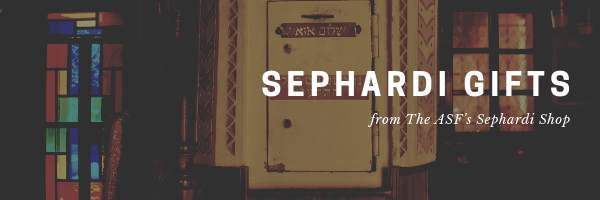
The Aristocrat: The Life and Legacy of Hillel Menashe Sutton
By Abraham Sutton
With this memoir, a tribute to the memory of his father, Abraham (Al) Sutton presents a brief synopsis of the history of the Jewish community of Aleppo, Syria, up to and through its diasporas to Tel Aviv, Jerusalem, New York, New Orleans, and Deal, New Jersey. All this in a thin volume generously laced with photographs. Al Sutton lost his father when he was only eleven years old. He thought he knew him; but one day he discovered that there had been a eulogy by a renowned kabbalist. He eventually found the text; what he discovered in the process provides the foundation of The Aristocrat. The book is interesting, fast moving, and sparkles with little glimpses of everyday life in a land (Aleppo) that was continuously inhabited by Jewish people from Biblical times until the late 20th century. There are also scenes of Israel during the War of Independence, and Syrian Jewish life in the United States. Author’s notes, bibliography.
On Being a Jew
By James Kugel
Composed as a meandering dialogue between a wily Syrian-Jewish banker and an American graduate student of literature, this engaging book explains all the basic beliefs and practices of Judaism―Jewish teachings on intermarriage and conversion, keeping the Sabbath, prayer and Torah, midrash and mitzvot, and G-d’s presence in the world. Although the book has plenty of the “how to” of religious practice, Being a Jew is in the end an eloquent reflection on Judaism’s deepest theme: living life as a way of serving G-d.
~~~~~~~
Upcoming Events or Opportunities:
| The ASF Institute of Jewish Experience presents: New Works Wednesdays Nadia Sabri, with contributing researchers, discusses the new collection Views of Jewish Morocco: Forms, Places, Narratives. In this interactive session Nadia Sabri will have a discussion with book contributors Abdou Filaly Ansary, Vanessa Paloma Elbaz, and Brahim El Guabli. Wednesday, 3 February at 12:00PM EST Sign-up Now!  The book is a multidisciplinary collective work that focuses on the memory of Moroccan Judaism through autobiographical accounts, testimonies, artistic experiences, and critical writings that shed light on them. These contributions weave an unprecedented set of texts and works of art, combining temporalities around memories of a world lost forever, of a Morocco that the young ignore, and that this book proposes to revisit in a pluralistic manner. The collection encompasses a contemporary reflection on the scope of maintaining the memory of Moroccan Judaism. About the Author: Academic and independent curator, Dr. Nadia Sabri is president of the Moroccan section of AICA (International Association of Art Critics). Nadia Sabri has built projects around Art and societal issues over the course of the last fifteen years. She conceives artistic projects as a driving force combining research, demonstrative processes, and experiences. Nadia Sabri has written and directed several research projects and publications on contemporary art and its relationship to sociopolitical issues such as cities, exile or even artist commitment. In 2015, she founded Exiles, paradigm fertile, a multidisciplinary platform for reflection and creation around the issue of exile as a creative and evolutionary paradigm. She lives in Rabat, Morocco, where she is associated professor at Mohammed V University and also works as a curator and researcher in several countries. Click here to read more about the book, Views of Jewish Morocco: Forms, Places, Narratives. Sponsorship opportunities available: info@americansephardi.org |
| The ASF Institute of Jewish Experience presents: Writing Between Tongues Part 2 With Ruben Shimonov Following the success of December’s talk “Writing Between Tongues: An Exploration of Hebrew and Arabic Calligraphy”, we are excited to bring back educator and artist Ruben Shimonov for a follow-up interactive artist talk, virtual gallery tour, and workshop. In this 90-minute session, we will take a deeper dive into the rich visual worlds of Arabic and Hebrew calligraphy. Educator, community organizer, and artist Ruben Shimonov will take us on an exploratory journey of his multilingual calligraphy and the ways he has used his art to enrich Muslim-Jewish interfaith communities. We will have a talk-back with the artist, as well as a live calligraphy demonstration during which you can try your hand at the calligraphy! Sunday, 7 February at 12:00PM EST Sign-up Now!  Born in Uzbekistan, raised in Seattle, and currently based in New York City, Ruben Shimonov is a Jewish educator, community builder, social entrepreneur and artist with a passion for Jewish diversity and pluralism. He previously served as Director of Community Engagement & Education at Queens College Hillel—where he had, within his vast portfolio, the unique role of cultivating Sephardic & Mizrahi student life on campus. Currently, he is the Founding Executive Director of the Sephardic Mizrahi Q Network—a grassroots movement building a supportive, vibrant and much-needed community for LGBTQ+ Sephardic & Mizrahi Jews. He also serves as Vice-President of Education & Community Engagement on the Young Leadership Board of the American Sephardi Federation, an ASF Broome & Allen Fellow, as well as Director of Educational Experiences & Programming for the Muslim-Jewish Solidarity Committee. Within both organizations, Ruben has used his artistry in Arabic, Hebrew & Persian calligraphy to enhance Muslim-Jewish dialogue and relationship building. In 2018, Ruben was listed among The Jewish Week’s “36 Under 36” young Jewish community leaders and changemakers. He has lectured extensively on the histories and cultures of various Sephardic & Mizrahi communities. Among his speaking engagements, he has been invited to present at Limmud Seattle, NY and U.K. He is also an alumnus of the COJECO Blueprint and Nahum Goldmann Fellowships for his work in Jewish social innovation. Sponsorship opportunities available: info@americansephardi.org |
| The ASF Institute of Jewish Experience presents: New Works Wednesdays Following our New Works Wednesdays fall series with Sina Kahen discussing his first book in the “Ideas” series, we welcome him back for a discussion on the second, newly-released book “Ideas: Shemot.” Sina will be speaking about “Monotheism & Science: How the Exodus impacted our understanding of reality.” Wednesday, 10 February at 12:00PM EST Sign-up Now!  The Torah is Judaism’s crown. The ideas gleaned from it have improved and advanced human civilization. Sina Kahen weaves together ideas from ancient to modern times, in an effort to provide an intellectually honest and spiritually fulfilling representation of the Torah’s weekly portions. Drawing from science, philosophy, psychology, and history, this series offers the reader a vision of Torah based on intellect and integration, rather than superstition and isolation. Sina Kahen is author of ‘Ideas: Shemot’, the latest volume in his popular series on the weekly Torah portion, based on the Classical Sephardi approach to Torah. His full time work is in surgical robotics and AI, and he represents The Sephardi Habura in the UK. Order your copy of “Ideas: Shemot” now Sponsorship opportunities available: info@americansephardi.org |
| The ASF Institute of Jewish Experience presents: New Works Wednesdays In our extended New Works Wednesdays series, Daniel Tsadik discusses his new book, “The Jews of Iran and Rabbinic Literature: New Perspectives.” Dr. Tsadik’s book addresses the question of Iranian Jewry’s familiarity with rabbinic literature from the 16th century to the beginning of the 20th century. Many of the book’s theses challenge and revise prevailing views that see this Jewry as largely isolated from world Jewry and its rabbinic legacy. Wednesday, 3 March at 12:00PM EST Sign-up Now!  About the author: A Fulbright scholar, Dr. Daniel Tsadik obtained his PhD in 2002 from the Yale University History Department. He authored several articles, a book entitled “Between Foreigners and Shi‘is: Nineteenth-Century Iran and its Jewish Minority” (Stanford University Press, 2007), another book entitled “The Jews of Iran and Rabbinic Literature: New Perspectives” (2019) which won the (Israel) Prime Minister Prize, and co-edited the book “Iran, Israel and the Jews: Symbiosis and Conflict from the Archaemenids to the Islamic Republic” (2019). From 2008 to 2020, Professor Tsadik taught at Yeshiva University, where he served as Associate Professor of Sephardic and Iranian Studies. His current research is on Shi‘ite-Jewish polemics. Order your copy of “The Jews of Iran and Rabbinic Literature: New Perspectives” now Sponsorship opportunities available: info@americansephardi.org |
 The ASF Institute of Jewish Experience presents: The Greek Experience Explore the world of Greek Jewry from the ancient Romaniote to the Sephardim and others who made it to and through Greece. An online course presented in 10 minute episodes. Learn at your own pace. Please sign-up now! Total cost of the course is $75.00 Jews have been in Greece since before the Temple was destroyed. They were in Greece upon the founding of the Greek Orthodox Church. Community members, known as Romaniote, made their way through Venice, Byzantium, Spain, across the Ottoman Empire, and beyond. Dr. Yitzchak Kerem provides an overview of the unique languages, liturgical nuances, and communal life of Jews across Greece. Dr Kerem spent significant time living in Greece and researching Greek and Sephardic history. Photographs, maps, and personal accounts provide course participants with a full picture of the unique nature of the Jews of Greece and its surroundings. In the course, participants will look at major influential points in Greek Jewish history. They will explore The Golden Age of Salonika, a time when Greece’s northern city was a hub of Jewish scholarship. Kerem introduces the tension arising in the Greek Jewish community because of Shabtai Tzvi and the Sabbateanism movement that brought with it false messianism and conversion to Islam, at least outwardly. The course looks at when the Alliance Israélite Universelle moved in and the Sephardic culture in Greece developed a rich secular culture with its own novels, theater, and music. This is part of the greater Jewish heritage and history that is often overlooked. ASF IJE online courses will bring to life all parts of the greater Jewish Experience. For more information and other ASF IJE online course offerings visit: https://courses.instituteofjewishexperience.org/ |
 The ASF Institute of Jewish Experience presents: The Crypto Experience The Global History of Secret Jews An online course presented in 10 minute episodes. Learn at your own pace. Please sign-up now! Total cost of the course is $75.00 The ASF Institute of Jewish Experience is proud to present “The Crypto Experience,” an online course on Crypto-Jews. It is part of a series of online courses on a variety of topics that make up the robust Jewish experience. For hundreds of years there have been descendants of Crpto-Jews, who have covertly kept some of their traditions while maintaining a very different public persona. It is a question of identity, be it Huegenot, Catholic, Sephardi, or Mashadi. Professing one faith on the outside and another on the inside speaks to our quest for defining identity today. These questions of identity that we think are so new and so relevant are really rather old questions under different circumstances. In this course Dr. Hilda Nissimi (Bar Ilan University) presents an overview of crypto societies historically and in the context of today. She challenges the participants to ask themselves difficult questions like: What defines identity? If I project this outer self, how do I keep my real me? Who is the real me? Am I the me before the expression of an outer facade? Is it a new me? The course discusses these questions as they pertain to Jews, specifically. What does it mean to be a Jew? What do I have to keep if I want to call myself a Jew? Am I allowed to change? Am I the person to decide? Who will decide? How can anyone decide under such circumstances? In order to understand this in historic and cultural contexts, world-renowned scholars and experts in the field have joined Dr. Nissimi and will be presenting the challenges facing a range of crypto societies: Huegenots – Dr. Hilda Nissimi Spanish-Portuguese Crypto Society – Dr. Ronnie Perelis (Yeshiva University) Bildi’in of Morocco – Professor Paul Fenton (Sorbonne Université, Paris) Mashhadi Jews of Iran – Dr. Hilda Nissimi Tracing Jewish Roots – Genie and Michael Milgrom Growing Up Mashhadi– Reuben Ebrahimoff For more information and other ASF IJE online course offerings visit: https://courses.instituteofjewishexperience.org/ |
Donate now All Jews Together @ the ASF’s Institute of Jewish Experience All Jews Together @ the ASF’s Institute of Jewish Experience“We have to unite our energies together. All Jews, together…. If we are united, all Sephardim and also Ashkenazim, together… we will see the light!” ~Enrico Macias The ASF Institute of Jewish Experience is uniquely dedicated to ensuring that today’s Jews know our history; appreciate the beauty, depth, diversity, and vitality of the Jewish experience; and have a sense of pride in Jewish contributions to civilization. Donate Now! |